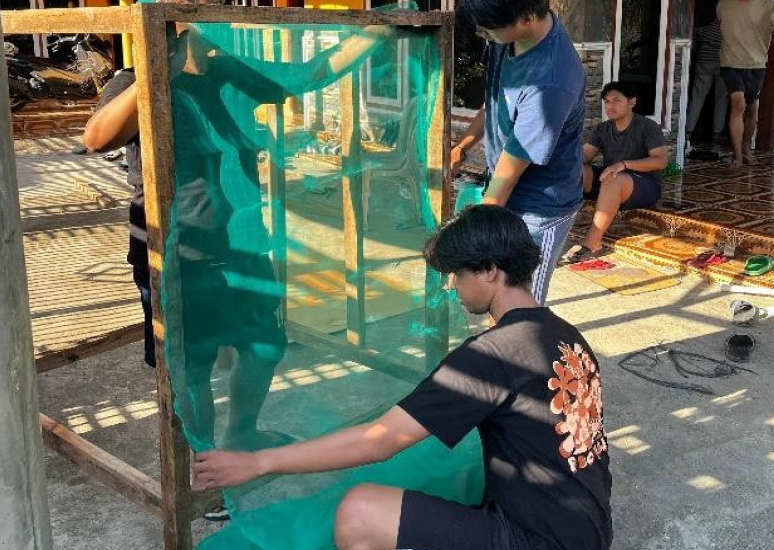Penerapan Konsep One Village One Product: Kandang Lalat BSF sebagai Solusi Pengelolaan Sampah di Desa Cangkingan
Penerapan Konsep One Village One Product: Kandang Lalat BSF sebagai Solusi Pengelolaan Sampah di Desa Cangkingan
Abstract
Organic waste management in rural areas still faces various obstacles, ranging from limited facilities to low public awareness in sorting and processing waste. Cangkingan Village, Kedokan Bunder District, Indramayu Regency, seeks to address these challenges by implementing the One Village One Product (OVOP) concept by building Black Soldier Fly (BSF) cages as an innovative organic waste management initiative. The methods used include field observation, activity documentation, and literature review to strengthen the analysis. The results indicate that the BSF cages can reduce the volume of organic waste, produce maggots as alternative livestock feed, and organic residue that can be used as natural fertilizer. In addition to having a positive impact on the environment, this program also encourages changes in community behavior towards more sustainable waste management and opens up opportunities for increased income through the sale of maggots and organic fertilizer. Although challenges remain, such as limited technical knowledge and the need for further assistance, the implementation of BSF cages has the potential to be developed into a superior village product that supports a circular economy, strengthens community economic independence, and preserves the environment.

Copyright (c) 2025 Ade Solahudin, Ronan Afrizal Hadi, Irbah Qurrotu’aeni , Melda Erella (Author)

This work is licensed under a Creative Commons Attribution 4.0 International License.
Padma (Jurnal Pengabdian Kepada Masyarakat) accepts manuscripts that have not been published elsewhere and are not under consideration for publication by other print or electronic media. Authors retain copyright and grant the journal right of first publication with the work simultaneously licensed under a Creative Commons BY-NC License that allows others to share the work with an acknowledgment of the work's authorship and initial publication in this journal.
Authors are able to enter into separate, additional contractual arrangements for the non-exclusive distribution of the journal's published version of the work (eg, post it to an institutional repository, in a journal or publish it in a book), with an acknowledgment of its initial publication in this journal.
License to Publish
The non-commercial use of the article will be governed by the Attribution-NonCommercial 4.0 International (CC BY-NC 4.0). The author hereby grants Padma (Jurnal Pengabdian Kepada Masyarakat) an exclusive publishing and distribution license in the manuscript include tables, illustrations or other material submitted for publication as part of the manuscript (the “Article”) in print, electronic and all other media (whether now known or later developed), in any form, in all languages, throughout the world, for the full term of copyright, and the right to license others to do the same, effective when the article is accepted for publication. This license includes the right to enforce the rights granted hereunder against third parties.







